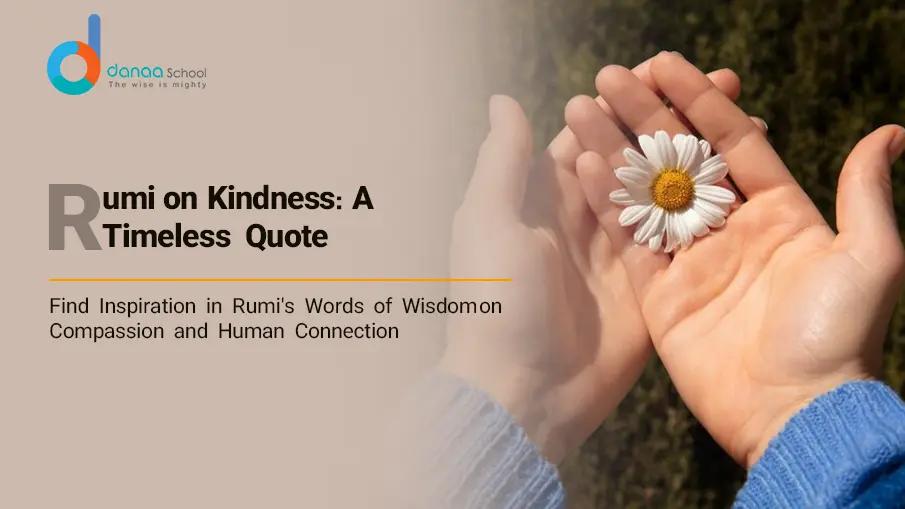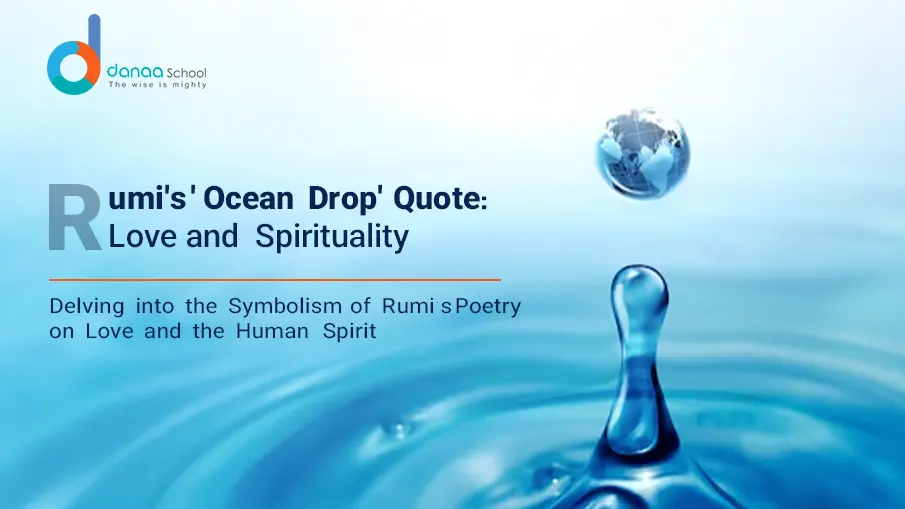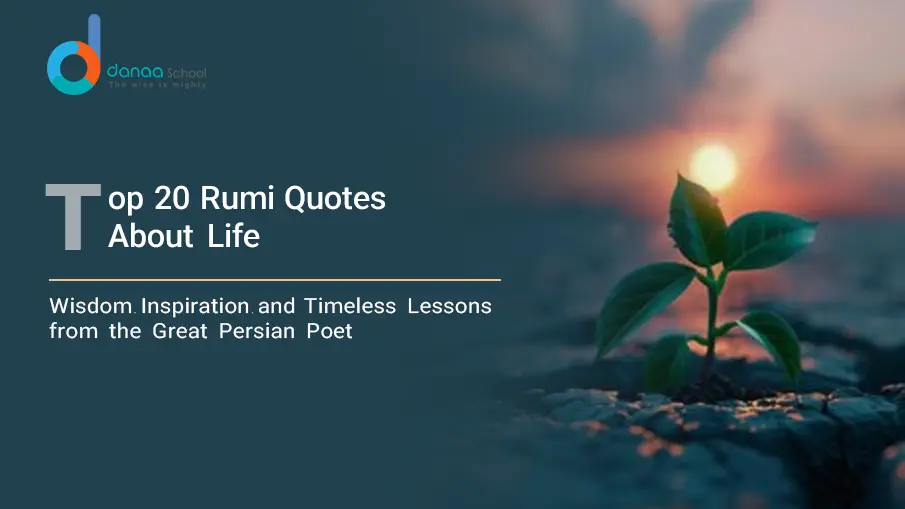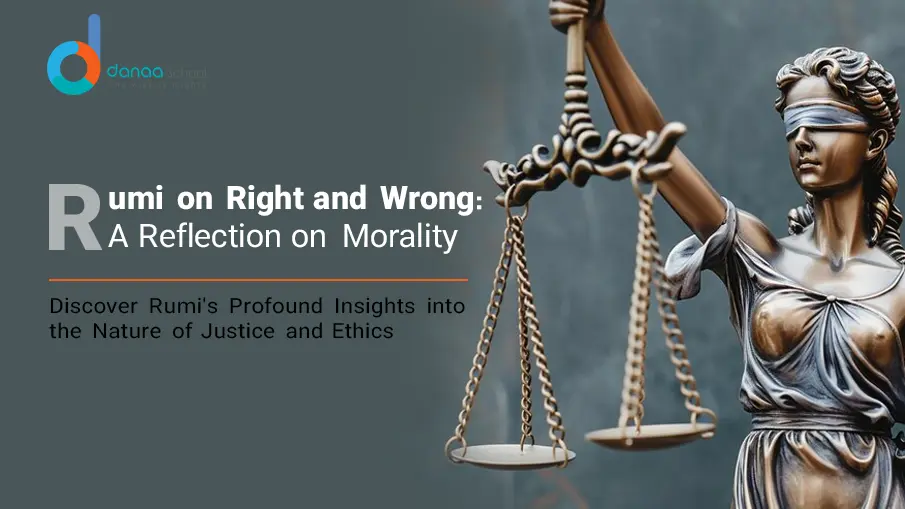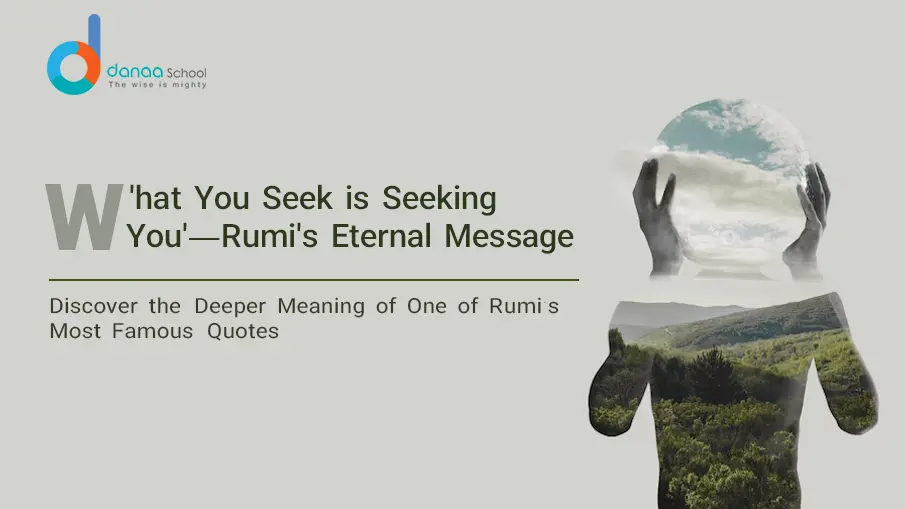What You Seek by Rumi
Rumi, a luminary of the 13th century originating from the land now known as Afghanistan, was not merely a poet but a spiritual guide whose wisdom transcended time and culture. His encounter with the enigmatic Shams-e Tabrizi catalyzed him into a realm of spiritual insight that would eventually shape his legacy as one of history’s most celebrated poets and Sufi masters. Let’s explore the story and meaning of What You Seek by Rumi.
A Closer Look at The Story and Meaning of What You Seek by Rumi
Within the brief lines of What You Seek, Rumi encapsulates the quintessential human endeavor — the relentless pursuit of meaning and truth. Despite its brevity, the poem resonates deeply, capturing the essence of the human condition and the perpetual quest for fulfillment.
An In-depth Analysis
Deciphering the Title’s Significance
The title, What You Seek, serves as a beacon, directing our attention to the core theme of the poem — the act of seeking itself. It prompts introspection into the nature of desire and the objects of our pursuit, inviting us to explore the depths of our aspirations.
Revealing the Layers of Seeking
Rumi’s verses subtly suggest that the journey of seeking holds profound significance. By starting a quest for enlightenment and truth, individuals open themselves to the possibility of uncovering deeper layers of meaning and fulfillment. The act of seeking becomes a transformative process, leading to self-discovery and spiritual growth.
Themes Explored in Depth
The Spiritual Odyssey
At its heart, What You Seek contemplates the spiritual odyssey of the soul. Rumi encourages readers to reflect on their pursuit of truth and the inherent longing that propels them on this profound journey. The poem invites us to question our motivations and aspirations, urging us to seek deeper meaning beyond the surface level of existence.
The Inner Expedition
The poem underscores the importance of the inner expedition. While external endeavors may provide fleeting satisfaction, true fulfillment lies in exploring one’s essence and the mysteries of existence that lie therein. Rumi suggests that the answers to life’s deepest questions can only be found by delving into the depths of our being, transcending the limitations of the material world.
Love, Yearning, and Unity
Central to Rumi’s discourse is the theme of love — both human and divine. What You Seek echoes this sentiment, suggesting that the ultimate aspiration of the seeker is to unite with the Beloved, whether in the form of a human soulmate or the divine presence that permeates all creation. Love drives the seeker’s journey, guiding them toward a deeper understanding of themselves and their connection to the universe.
Philosophical Underpinnings
Sufism: The Path of Mysticism
Rumi’s teachings are deeply entrenched in the traditions of Sufi mysticism, which emphasize a direct experiential connection with the divine through love and devotion. His poetry is a testament to the Sufi belief in the interconnectedness of all beings and the pursuit of spiritual union. Through his verses, Rumi invites readers to transcend the boundaries of conventional thought and experience the divine presence in every aspect of existence.
Embracing Unity in Diversity
In What You Seek, Rumi accentuates the interconnectedness of all existence and the underlying unity that permeates the cosmos. He urges readers to transcend dualistic thinking and recognize the divine essence that permeates every facet of reality. Rumi’s philosophy emphasizes the interconnectedness of all life forms and the inherent unity that binds us together.
Enduring Legacy and Influence
Literary and Spiritual Impact
Rumi’s poetic heritage goes beyond the boundaries of time and culture, creating an unforgettable impact on literature and spirituality. His poetry motivates numerous seekers, leading them to self-discovery and enlightenment. Rumi’s poems are an eternal reminder of the everlasting strength of love and the human spirit, providing comfort and motivation to all seeking knowledge and understanding.
Relevance in Contemporary Society
Despite the chasm of centuries, Rumi’s message remains as pertinent today as it was in his era. In a world fraught with turmoil and materialism, his poetry serves as a beacon of solace and wisdom, offering guidance to those navigating the complexities of existence. Rumi’s timeless wisdom speaks to the universal human experience, transcending cultural and religious boundaries to offer insights into the nature of existence and the human condition.
Why Danaa School?
Danaa School is committed to preserving and promoting the rich cultural heritage of Persian poety, including the timeless pems of Rumi. With a curriculum designed to inspire and educate, Danaa School allows students to explore the world of the Persian poetry and discover the profound wisdom and beauty contained within.
Through engaging lessons, interactive activities, and immersive experiences, Danaa School students learn about the legendary Persian poets and develop a deeper appreciation for the cultural heritage that continues to shape their identity and worldview.
Conclusion
In What You Seek, Rumi beckons us to contemplate the nature of our desires and the significance of our quest for truth. Through his timeless verses, he reminds us that the answers we seek are not external but lie within the depths of our hearts. Rumi’s poetry serves as a roadmap for the spiritual journey, guiding us towards a deeper understanding of ourselves and the universe.
Are you fascinated by the timeless Rumi poem What You Seek? Do you want to explore the world of Rumi and discover the wisdom and beauty hidden within its poetry? Look no further than Danaa School’s Poetry classes! Enroll now.
FAQs
1. Is Rumi’s poetry exclusive to followers of Sufism?
Rumi’s poetry transcends religious and cultural boundaries, resonating with the universal human experience of longing and seeking. While deeply rooted in Sufi mysticism, his verses offer insights into the human condition that are relevant to people of all backgrounds.
2. What does the Beloved symbolize in Rumi’s poetry?
The Beloved represents human love and the divine presence, serving as the ultimate source of fulfillment and spiritual union. Through the symbol of the Beloved, Rumi explores the profound connection between human beings and the divine, inviting readers to experience the transformative power of love in their own lives.
3. How can one apply Rumi’s teachings in everyday life?
One can embody the essence of Rumi’s wisdom by fostering mindfulness, practicing compassion, and seeking beauty and truth in mundane experiences. Rumi’s poetry offers timeless insights into the nature of existence and the human spirit, guiding readers toward a deeper understanding of themselves and their world.
4. Why does Rumi’s poetry remain relevant today?
Rumi’s verses address timeless themes such as love, yearning, and the quest for meaning, resonating with individuals across cultures and backgrounds. In an increasingly complex and fragmented world, his poetry offers solace and inspiration, reminding readers of the enduring power of love and the human spirit.
5. What is the best approach to exploring Rumi’s poetry?
Begin by selecting a collection of Rumi’s poems and immersing yourself in them gradually, allowing their profundity and beauty to unfold personally. Rumi’s poetry is meant to be experienced rather than read, inviting readers to start self-discovery and enlightenment through his timeless verses.




